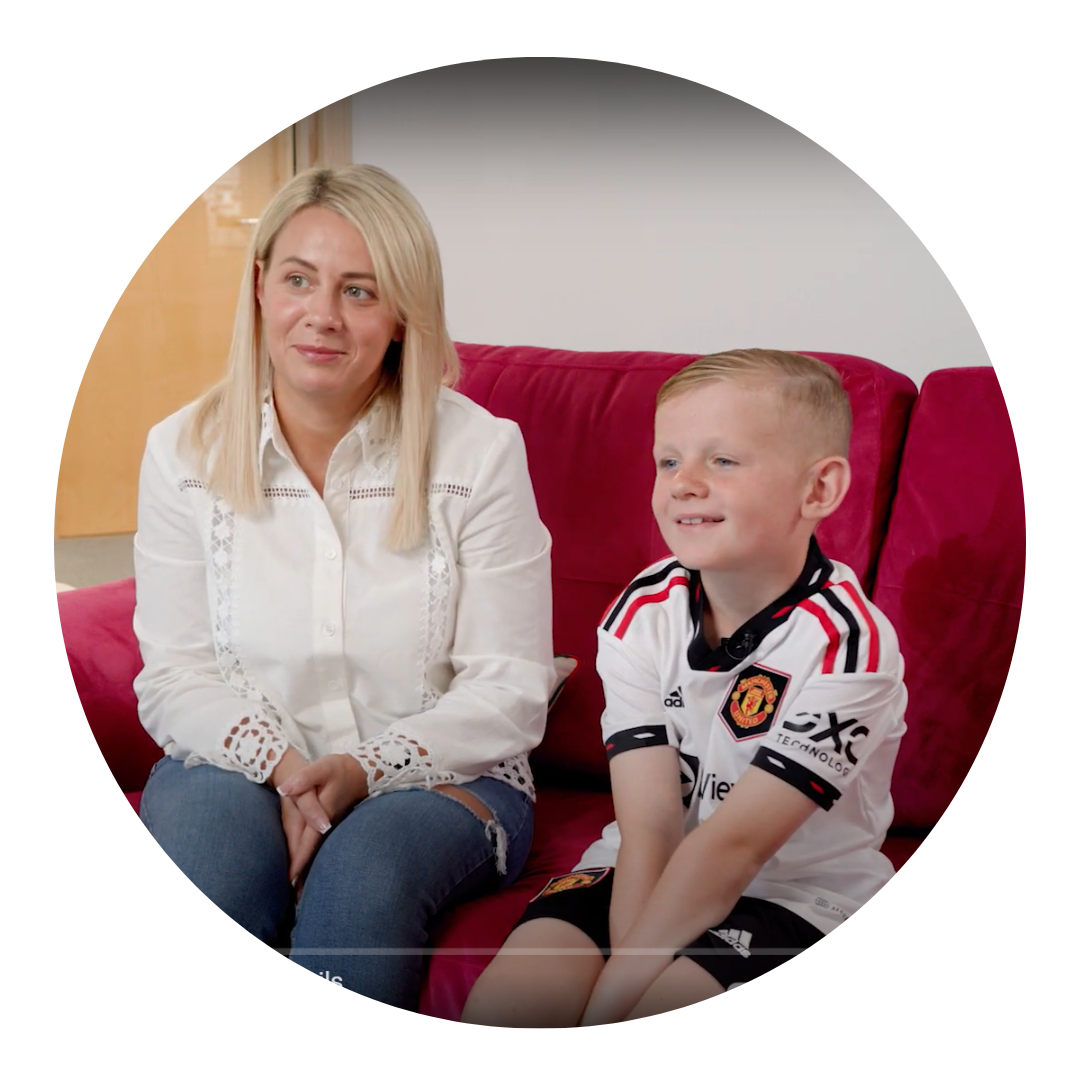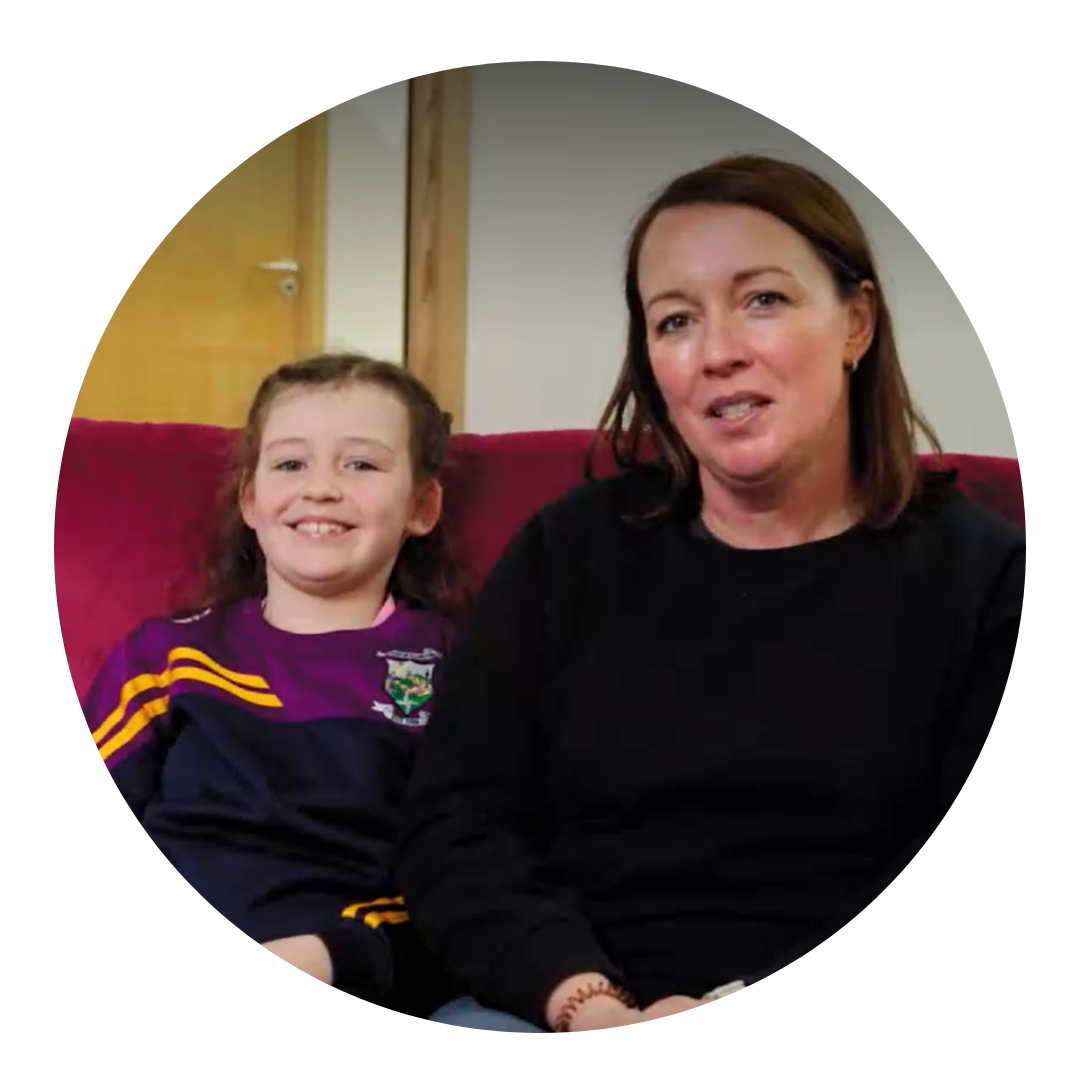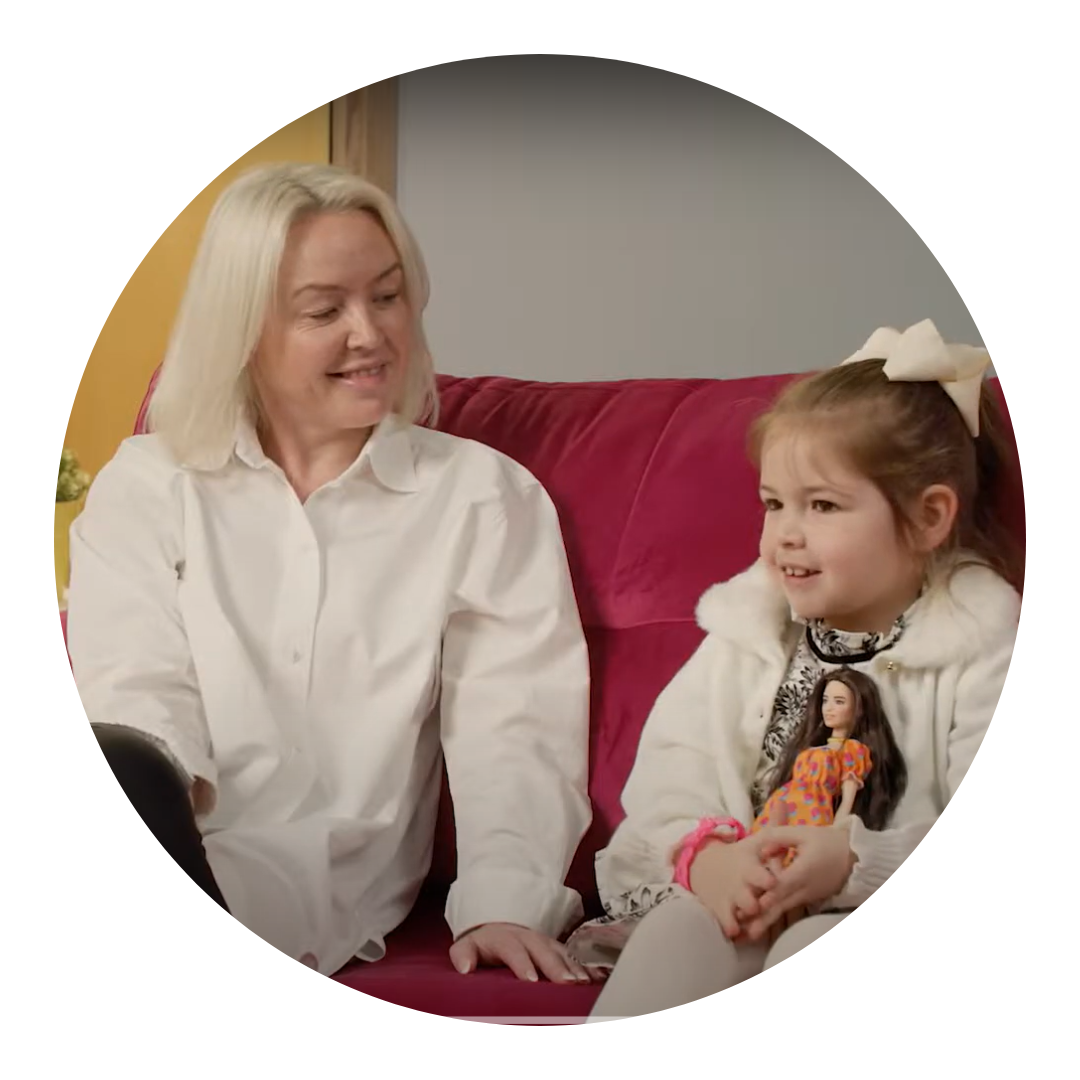Meet the Patients

Meet some of our little heroes and hear about the difference your support has made in their lives.
Cade

Eight-year-old Cade was quite sick as a baby, but his parents never knew what was wrong with him. His mum Laura explained that “his body used to break out in loads of bruising, and we never knew what it was. He had only learned how to walk so we thought it was down to that. So, we decided to take him to the doctors, and we were sent straight to hospital, and we knew there was something wrong.” Cade was diagnosed with myelodysplastic syndrome (MSD), a blood disorder that can lead to leukemia. “When we got the diagnosis, I just wanted to keep going forward and just do what we could to get him better. He was my little baby at the time, we were all quite young, we didn’t know what was going on, it was quite frightening. At the time I didn’t believe anyone when they said my baby was going to be ok. He’s like a different child now, you would never think there is anything wrong with him.”
Professor Owen Smith, Pediatric Hematologist at Children’s Health Ireland treated Cade and explained a bit more about the condition and his research. “I’ve had a huge interest in blood disorders and cancers over the last thirty years. Myelodysplastic syndrome is a group of different disorders. We make our blood in our bone marrow but for patients like Cade, the blood dies within the bone marrow – we call that ineffective hemopoiesis. As a result, these patients present with anemia, low white cell counts, they can have infections, low platelet counts, and they can have bruising and bleeding. The important thing to note about pediatric myelodysplastic syndrome is that it is a pre-malignant condition, transforming into a refractory type of acute myeloid leukemia.”
“With Cade’s case, he had enough cells in his bone marrow that were showing the leukemia transformation, that we knew that we had to go after it and transplant him. When we look at these particular rare disorders, what we really need to know is that, how rare are they? What is causing the actual underlying problem? We can only do that through research. Fundamental discovery science can only sort out these chronic toxicities going forward. That’s the future - Today’s research is tomorrow’s cures.”
From understanding disease progression to providing tailored treatment options for children, your support will allow CMRF to invest in innovative research programs that will make each day easier for children battling chronic illness.
Alice

Alice was referred to Children’s Health Ireland at Crumlin when she was diagnosed with hypermobility, a condition where a patient has more range of movement in their joints than would be typically normal. Being hyper mobile for most people can be an advantage in sports and activities, but for the children and young people in Children’s Health Ireland at Crumlin, they can present with chronic pain and fatigue which has lasted many years, often since they were young children.
Alice’s mum Patricia shared their story with us and said “at the start I didn’t understand. Everything was hurting her and she was in really bad form. Her back, everything was tightened, she was in pain - and then when you get the diagnosis of hypermobility you finally say, it all makes sense now. And then when we started physiotherapy and treatment, it improved everything and she’s like a different child to what she was two years ago.”
Susan Ward, Clinical Researcher at Children’s Health Ireland added “To look at a child, like Alice, she doesn’t look like she has any symptoms or any diagnosis whatsoever. And yet in the evening times, her pain and fatigue might really impact very severely on a family’s life, with broken sleep and then fatigue rolling on to the next day and perhaps not being able to get into the start of school. This can have repercussions later in their lives. Funding from CMRF has enabled me as a clinician to step out of my clinical role and become a full-time researcher. Improving children and young people’s lives will help their progression into young adulthood, improving their health and wellbeing for their entire lives.”
Today’s research is tomorrow’s cures. From understanding disease progression to providing tailored treatment options for children, your support will allow CMRF to invest in innovative research programs that will make each day easier for children battling chronic illness.
Ruby

Seven-year-old Ruby’s favorite things to do are dancing, singing and art, along with all the other things that seven-year-olds do best. She is full of joy and clearly not a girl that will let her illness define her. Ruby tells us “art, oh I love it. I make cards for people the most, like Get Well Soon cards, Valentine cards. When I got my operation done, my mom said to me that it was the best Valentine’s gift ever.”
When Ruby was two-and-a-half, she was diagnosed with a Grade-4 pineal blastoma, a type of brain tumor. Every year in Ireland approximately 60 children are diagnosed with a brain tumor, whereby a change occurs in the normal cells in the brain. This change causes the cells to undergo a series of events, resulting in a growing mass of abnormal cells causing a tumor to form. Many that are slow growing are cured with surgery alone. Other types that are faster growing might need additional treatment with radiation therapy or chemotherapy, or both. Ruby’s journey saw her attend Children’s Health Ireland for surgery and six rounds of chemotherapy.
For any family on a cancer journey, the initial news can be devasting. Ruby’s mom Yvonne explains, “when they told me, you just automatically go into the mode of OK, please give me a plan, give me something. They had gloves on them, they had protective glasses on them to hook this medication up. And you’re looking at all this protection they have on them and you’re thinking, ‘but that’s going into my baby’. All your power as a mammy is gone. It’s taken away immediately because you can’t fix this. Somebody needs to fix this because I, as a mammy, can’t kiss it and make it go away.”
Yvonne appreciates the tremendous work of the staff in Children’s Health Ireland. She told us, “the staff were amazing, there is probably nobody like them. The job they do, I don’t know how they do it. You’re constantly looking for a bit of hope, you’re looking for something to give you a bit of strength to just keep fighting. When you see patients getting treatment based on money that was raised by people for research, you realize OK, this works, these people are making a difference. What you fight every single day for is to hear those words, ‘the scan is clear’. There is an amazing team constantly fighting and researching and trying to figure ways to make children better.”
Ruby is so grateful for where she is on her journey. She said “it means a lot to me and my mum, it does. The fact that they were able to give my mum the Valentines gift of me getting better.”
Around 190 children and teenagers under the age of 16 are diagnosed with cancer each year in Ireland. Survival rates are now approaching 80% for childhood cancers overall. But we can do better, and with your support, we aim to beat all childhood cancers and give the best quality of life to all patients. By supporting CMRF, you will fund vital research in the fight to beat all childhood cancers, and research into survivorship programs for pediatric patients living with and beyond cancer.
